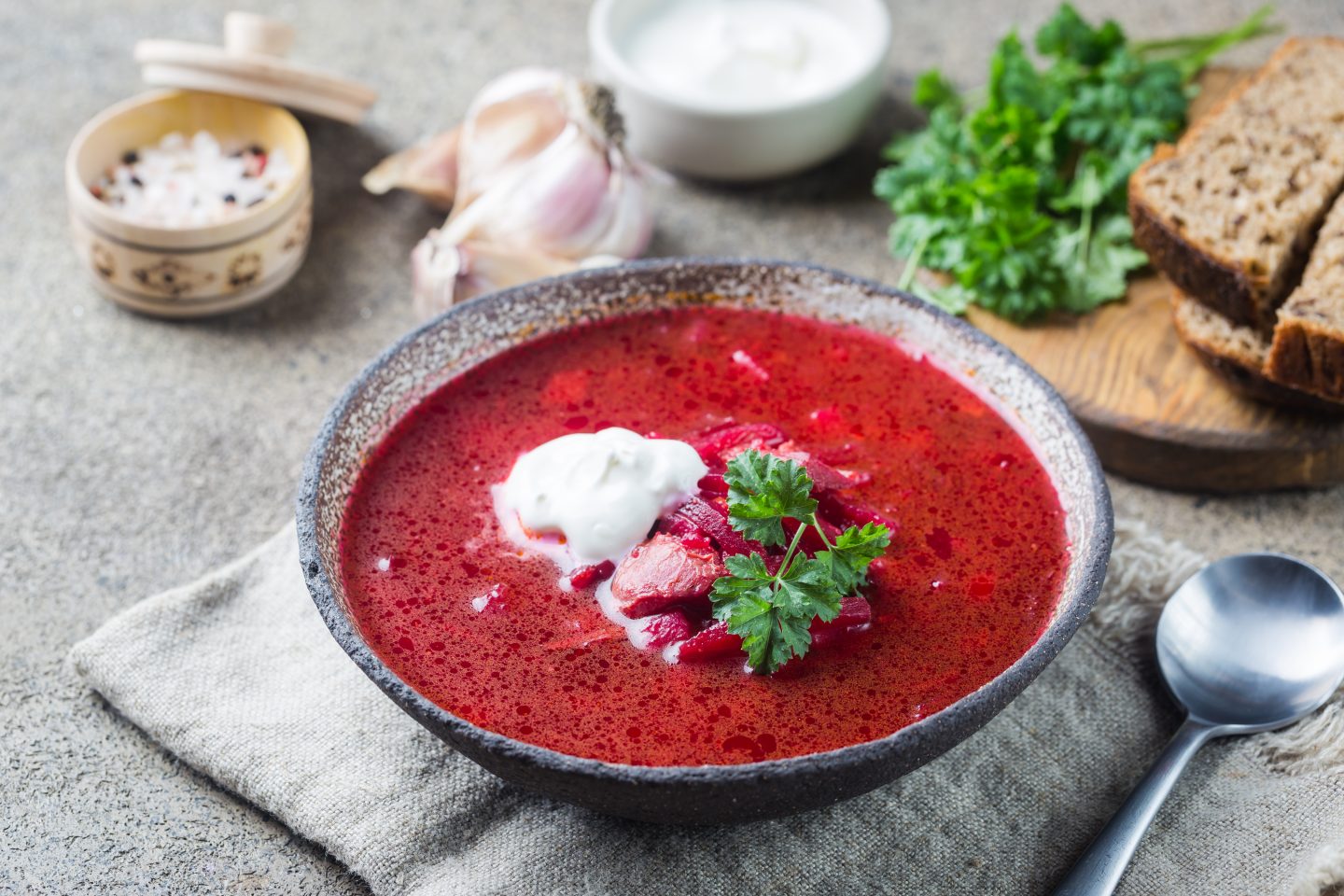
Ukrainian Borscht soup is one of my favourite dishes to cook in the winter. I love sitting by the fire with a nice big bowl of soup to warm me up. I love it because it has that amazing red colour and you get all the goodness of the beetroots and the red cabbage. Both Beetroutes and red cabbage contain phytonutrients known as anthocyanins. These give them a nice rich red colour. These powerful antioxidants can repair and protect our DNA from free radicals.
Once you’ve made the soup, it freezes well, so you can always make it ahead of time or pop it into small containers and then just grab it from the freezer for a quick meal.
I hope you enjoy this Ukrainian Borscht soup as much as I do.
Directions
Details
6 Servings
20 Minutes
20
123
Ingredients
1 cup diced onions
1 cup diced celery
1 cup chopped red cabbage
2 cloves of garlic grated
1 tbsp butter
8 cups of chicken stock
1 can of diced tomatoes
3 medium peeled and diced beetroots
2 medium carrots grated
1 medium potato diced
1 tsp fresh dill finely chopped
a dollop of sour cream to serve
Directions
- Saute the diced onions, celery and chopped cabbage with the butter until it is soft and translucent.
- Then add the tomatoes, garlic and all of the chicken stock.
- Over medium-high heat, bring to a boil. Then reduce heat to a medium temperature and let simmer.
- Whilst simmering, peel the beetroots and potatoes and dice them up.
- Grate the carrots.
- Then add the carrots, potatoes and beetroot to the broth and allow to simmer until the potatoes and beetroots are soft. I test this with a fork, and it usually takes about 15 minutes.
- Stir in the fresh dill and add a pinch of Salt and pepper.
- Serve hot with one dollop of sour cream.
Nutrition Facts
6 servings per container
Calories123
- Amount Per Serving% Daily Value *
- Total Fat
2.5g
4%
- Saturated Fat 1.5g 8%
- Cholesterol 6mg 2%
- Sodium 281mg 12%
- Amount Per Serving% Daily Value *
- Total Carbohydrate
20.2g
7%
- Protein 2.3g 5%
* The % Daily Value tells you how much a nutrient in a serving of food contributes to a daily diet. 2,000 calories a day is used for general nutrition advice.